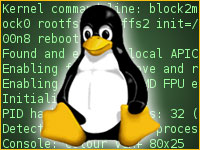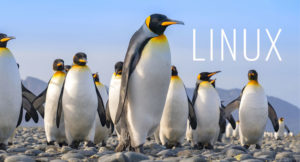
Happy Birthday, Linux Project — this week you turned 24.
The Linux OS has grown up everywhere. Its code and the open source model are found worldwide. People often use linux without knowing it — when they search on Google, buy metro tickets or surf the Web. Linux powers all of that infrastructure.
Linux travels worldwide on airplanes, and it’s embedded in many of the smart devices that bring ultra convenience to our homes and cars. It runs our WiFi routers and our Android phones and tablets.
Linux drives our HDTV sets and set-top boxes. Linux now is regarded as the de facto operating system of choice by manufacturers of electronics toys, video and telephone equipment, and remote controls.
For big enterprises and small entrepreneurial startups alike, Linux has been game-changing. So in honor of Linux’s two dozen years of giving, LinuxInsider brings some gifts of praise to the party.
“Throughout earlier, challenging times, I maintained that life was good. With Linode and by extension, Linux, life is sublime,” said Keith Craig, public relations manager for Linode.
Transformational Experience
Linux has been nothing short of transformational for Craig. Without the existence of Linux and its open source mantra, he never would have stumbled on the perfect balance.
That’s because when Linode CEO Christopher Aker founded his cloud-hosting business 12 years ago, he built it on the back of Linux. Simply, if he had lacked the foresight to choose Linux as the backbone operating system for server virtualization, the company would not exist today, according to Craig.
“That’s where the transformative aspect of Linux affects me,” he told LinuxInsider. “Today, working for Linode is the most satisfying and rewarding career move I have made — and I am not alone in that assessment. We probably should hold daily sacraments to Linux.”
Why Linux?
Linux gives consumer product manufacturers a stable operating system with no royalties to pay and no ownership hassles. Not having to cater to a controlling corporate entity gives manufacturers a tremendous marketing advantage.
Linux has become the first OS choice in the manufacturing and database industries, and that can be credited in large part to its solid reliability and its ability to scale and innovate. Linux is a very functional operating system.
“Linux led to the collapse of the infrastructure decision debates of many IT shops. Before Linux, long-term choices concerning the OS, database, development language, and more divided IT shops — and the resulting incompatibilities led to dysfunctional applications,” said Guy Smith, chief strategist for Silicon Strategies Marketing.
Linux and its close followers, such as MySQL, PHP and Apache, took attention away from infrastructure, shifting the focus to applications and interoperability.
“Without Linux, this may still have happened, but it would have taken decades longer. I’m glad I had a hand in convincing CxOs that going with Linux was the right strategic choice,” Smith told LinuxInsider.
Desktop Savior
The Linux OS for desktop and laptop computers has a growing user base scattered around more than 600 Linux distributions. While some lament the lack of a bigger OS takeover, steadfast Linux OS users cling to it passionately.
“I converted my entire business to Linux after a major equipment failure rather than upgrade to MS Windows Vista and haven’t looked back! Linux has made computing fun again,” Wisdom Seekers President Jeffery Sullivan told LinuxInsider.
For some diehards, putting Linux on just any used-to-be Windows box just is not good enough, and an increasing number of hardware makers now cater to them. Take, for instance, Purism and its Librem laptop line that runs PureOS, a Linux-based operating system with Ubuntu, Debian and Trisquel heritage.
“Linux, like swallowing a red pill, made me realize at a very young age that the world of proprietary non-free software handcuffed my abilities, creativity and innovation,” said Todd Weaver, CEO of Purism Computer.
The Librem has the potential to increase the market share of Linux-based open source software and make it simpler to use and more accessible to consumers, he told LinuxInsider.
Linux Is Liberating
“Linux liberated people and businesses from Microsoft lock-in,” observed Pierre Fricke, vice president of product marketing for EnterpriseDB.
Before Linux there was no open choice. You had lock-in even with Unix. People simply used what was put in front of them, and it was expensive,” he told LinuxInsider.
With Linux, people have learned to question and make demands for better software and user experiences. Linux also helped drive down the cost of personal computing, Fricke said. “It has made computing accessible to people all over the world.”
Linux Livelihood
For some business and IT pros, Linux is a lifestyle.
John Turnbull, general manager of Thunderstone Software, first started using Linux in 1992 — the 0.9x versions. It took him days to download it with a modem and then compile it from source.
It was inspiring to see what one person, or a small team could achieve, he told LinuxInsider, and it gave him the confidence to tackle big projects.
The adoption of Linux led to a dramatic decline in different Unix variations to support. It also provided a much more consistent development environment, which “allowed for the creation of more complex and useful software,” said Turnbull.
Three other reasons make Linux the choice of product makers and software developers: Linux is cheaper to run; it is less costly to modularize; and it is easier to secure.
“GNU/Linux has made my life better. It was my first significant exposure to free software and really opened my eyes to FLOSS in general,” said Marcus Hildum, lead security engineer at DreamHost.
“It’s what I do for a living, and it has empowered me to make positive changes for the Internet as a whole,” he told LinuxInsider.
Linux as Plot Maker
A couple of years ago, a huge question was on a lot of minds: How did a group of Russian crooks steal millions of customer credit card numbers from a Fortune 500 company?
One of Greg Scott’s tech specialties is IT security — now a senior technical account manager at Red Hat, he had built Linux-based open source firewalls for more than 15 years.
“That was before North Korea took down a major American movie studio and the Chinese invaded the U.S. government,” he told LinuxInsider.
“The same question was on my mind, so I did a bunch of research into it. Turned out that nobody would talk about details on any of the major breaches we have all read about,” Scott said.
So, he spent the next 16 months writing and publishing a book to explain it all — and Linux is a big part of the story line. That is how Bullseye Breach was born. It’s an educational book disguised as an international thriller, about a large Minneapolis retailer — Bullseye Stores — that loses millions of customer credit card numbers to a group of Russians.
“The book tells a great story,” said Scott, “but one of the best parts is how an ad hoc team comes together and uses open source tools to fight back. So Linux has had a huge effect on my life, which will hopefully continue.”





















































Excellent article and is right on with probably 90% or more of many businesses today that are enjoying the use and freedom of open source. Let us not forget that Linux is also a result of the GNU General Public License, developed by Richard Stallman, which is the driving force of open source software, which has an even larger affect on today’s computing.